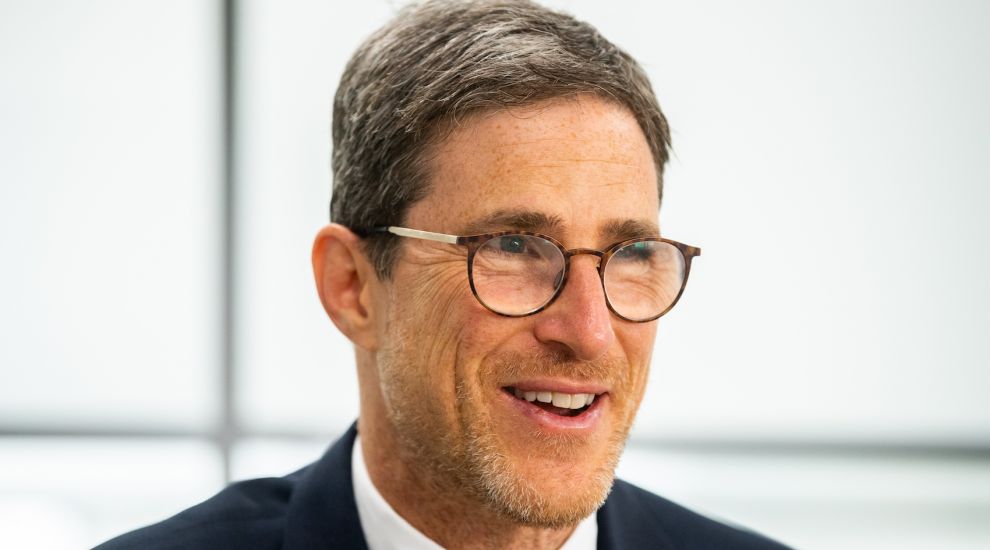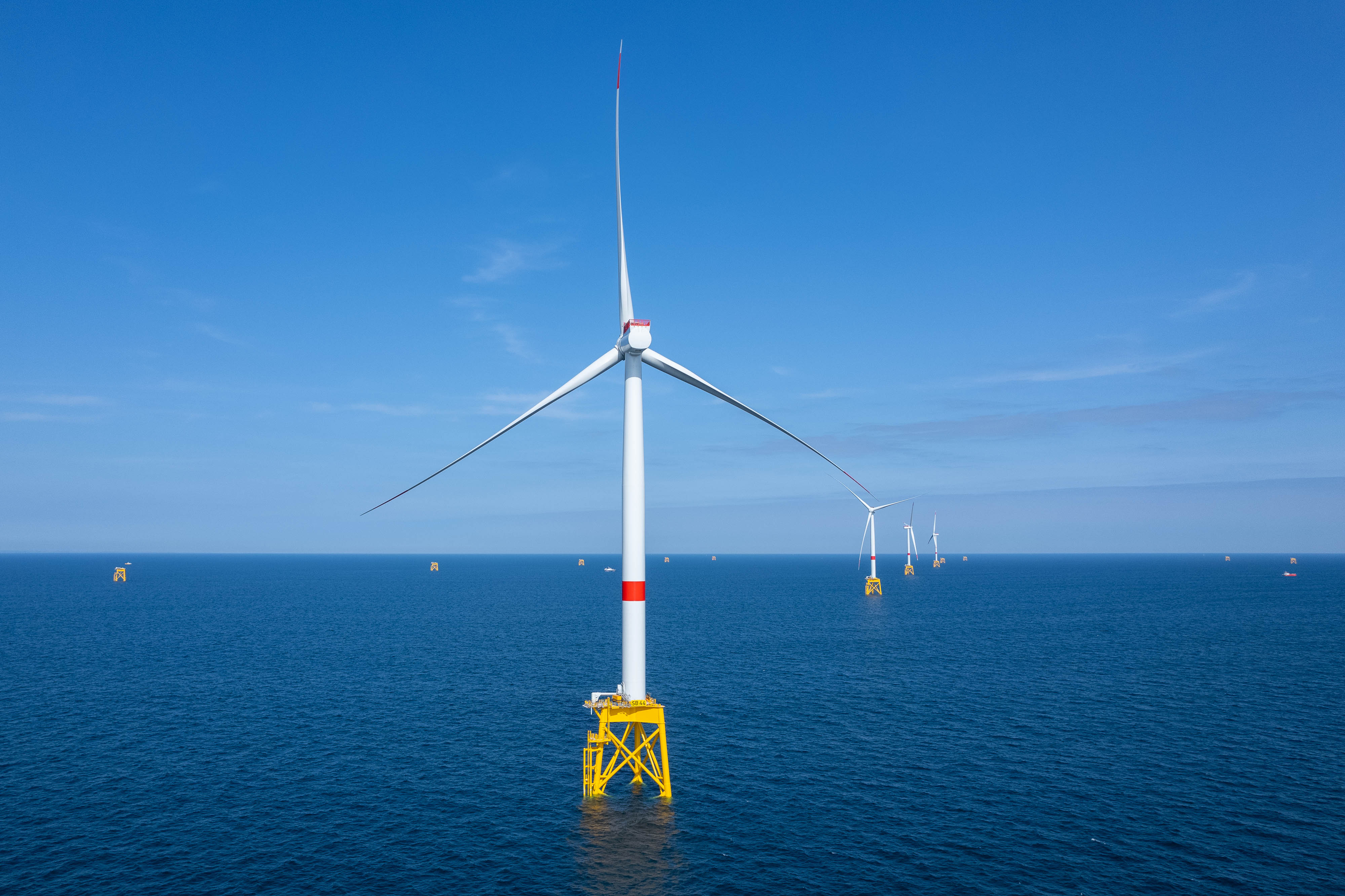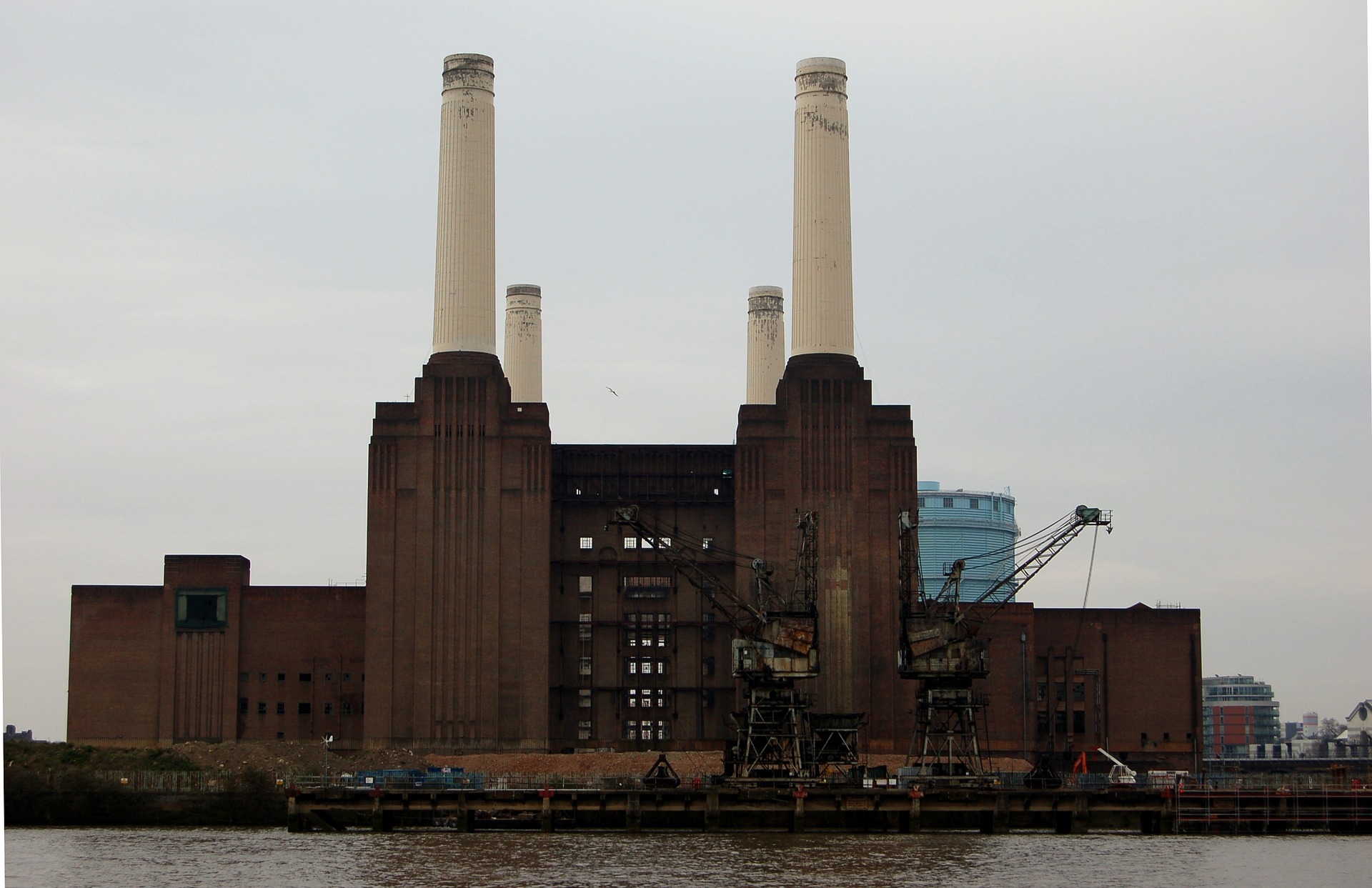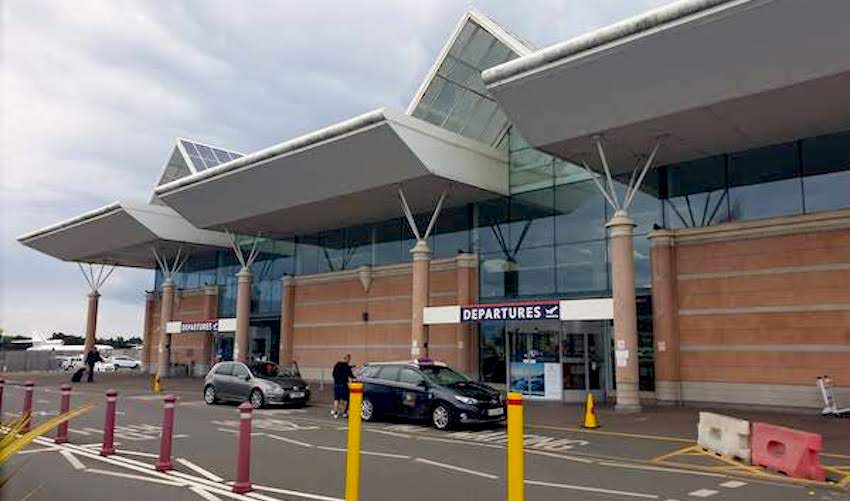


A new islander, who leads an organisation which has €79 billion of assets across five European countries – and owns Portugal’s largest marina – is probably well placed to argue that Jersey should have nothing to fear from the private capital funding public infrastructure projects…
Zachary Lewy moved to the island from the UK with his wife and four children three years ago.
Mr Lewy is an articulate and reflective New Yorker who clearly sets out to comprehend local concerns.
Indeed, the business he founded and leads – Arrow Global – involves global investment managers working on 19 municipalities in the UK, Ireland, the Netherlands, Spain and Portugal, so is built on an ability to understand the nuances of each area.
When he says he loves living in Jersey, he is clearly not playing to an audience but expressing a well-considered view – no doubt reached while enjoying breakfast with friends and family in St. Ouen's Bay.
He reflects: "The thing I love about Jersey, which I have never seen anywhere else, is that sense of community, which works in an almost pre-war collaborative way. It is completely normal to have your neighbour's kids having a bath with yours on a Tuesday night or meeting up for a coffee every week with the same families. It is totally casual.
"Here, you get that familiarity combined with a population which is a very knowledgeable, well-travelled, civilised, cosmopolitan and worldly group. Normally, to get that level of relaxed familiarity and community, you have to move to a place where it is quite parochial and backwards.
"In most financial hubs, you get the worldly perspective and connectivity but without the community. And in most rural places, you get the community without the global outlook. The integration of those two is an amazing achievement.
"Taking those things together, if we can keep the island's connectivity and the resolve the funding gap, the quality of life here is as high as I have ever seen. We have great friends here and we've been welcomed completely.
"I am a high advocate for the island in that regard. The challenge is to keep that while being forward to addressing the demographic challenges and the narrowness of industrial base, and so on."
But this interview would be a wasted opportunity if Mr Lewy just spoke platitudes about island life. The island has its challenges, as we all know.
So, let's tackle head-on the controversial topic of Jersey's high-value residency rules: the 2(1)e or 1(1)k regime, as we poetically call it.
To begin with, a little preamble is required. Arrow Global might not own assets in Jersey, but it has established many roots in the island since Mr Lewy arrived.
Its investing infrastructure, for one, is split between Luxembourg and Jersey, and the Chair of the firm's investment committee, Monique O'Keefe, is another islander who is also Deputy Chair of the JFSC.
Since Mr Lewy moved to Jersey in July 2020, Arrow's Head of Technology and Head of Risk, and other key leaders have followed him to the island. The company also owns a large stake in development and lending business Maslow Global and owns Ireland- and UK-focused real estate developer Eagle Street. Both businesses have bases in the island.
For Mr Lewy, the 2(1)e rules are an intelligent and rational way of promoting economic activity.
"If the entrepreneurs come here, the businesses come here, and the teams come here and, all of a sudden, 'Jersey plc' starts to benefit from multiple companies, which have substantial activities based in the island," he said.

Pictured: Mr Lewy thinks high-value residency is a good way to stimulate the economy.
"I frankly don't understand the intellectual integrity of the argument that businesses here don't have economic impact. I think they most obviously do, in a very positive way, for a range of activities, from Jersey offices and trust companies to fund managers, law firms, accountancy firms and building firms.
"The people are intimately connected to the businesses – the whole thing is an integrated whole. By welcoming the right entrepreneurs, you also get the businesses that follow."
So, in owning real estate and development businesses and employing fund managers, what exactly does Mr Lewy's company do?
"We identify, acquire and manage secured and unsecured loan and real estate portfolios from and on behalf of financial institutions, such as banks, institutional fund investors and specialist lenders," Arrow Global's website reports.
Breaking that down, it owns 19 'platforms' spread across its five jurisdictions. These include physical assets – from the largest marina on the Algarve to a manufacturer of photovoltaic power plants in Italy.
As Mr Lewy explains: "If you asked most individuals what their biggest investment was, they'd say it was their house, so there is an intuitive understanding of how most people allocate capital. But if you're a big institutional investor such as a pension or insurance fund, it is quite hard to access local property.
"You can buy stocks on the stock market or take on a set of advisers to help you buy, say, a Canary Wharf, but if you want to invest in local real estate, hotels and offices, and support specialty mortgages, construction, agricultural and bridging loans, you need a platform to get at that local business. Arrow is that platform.
"We provide the fund managers, which allows global institutional investors to give us capital, which we bring to the local level with our mortgage services, hotel operators, construction lenders and bridge lenders etc.
"It is vertically integrated – by working with that local knowledge, we can bring the right capital to the right local projects.
"For an investor approaching Europe – where you have 44 countries, 24 languages and 6,000 banks – it isn't easy to channel money from a big global institution to the level level, without someone like us."
As well as developing local platforms, Mr Lewy's 2,300 employees work for more than 200 banks, providing expert advice to those institutions.
With experience of successfully attracting billions of private capital to some of the Europe's most prestigious destinations, such as Vilamoura, Mr Levy recognises the potential that Jersey has to develop its own public infrastructure, as well as the limitations.
"It is intuitive to us to enter into stakeholder dialogues because you are never going to be locally relevant and calibrated to the issues of the community unless you are out talking to people.
"The interesting question for us is, to what level do we bring those skills and investment to Jersey? We have started looking at projects here and I am optimistic we will find ways to add value to the community.
"As an islander myself, it would be great to bring some of the best practice that we have learned in many places to the island in a thoughtful and considered way."
He added: "When I look at Jersey, there is a very important stakeholder dialogue as to what are the Tier 1, 2 and 3 priorities? The ageing population does create a funding requirement and there is a limited set of economic activities that will realistically address that."
He continued: "From what I have seen, you would clearly want to optimise renewables. So, if you could develop a wind farm at the end of our boundary waters, to me, that is a no-brainer. If you can drive the sustainability agenda, generate significant revenue for the Treasury and create jobs, it seems like a consensus winner.
"Jersey has shown considerable resilience over the years, and financial services provides a current focus, and that is a key revenue stream for the island. But no one wants to be a one-trick pony, so having a public debate about what is the right spot for tourism and what other industries can we cultivate, to me, it seems to be an important set of dialogues.
"It has to be done inside the parameters of what is the funding gap we are seeking to close, and setting out those priorities and strategies is an obvious first step."

Pictured: Mr Lewy said a wind farm project seems like a "no-brainer".
Mr Lewy is conscious that Jersey doesn't have acres of open space or miles of rugged shoreline which offer development potential, as Arrow is looking at elsewhere.
"One of the things about Jersey which is clear to me is that the number of physical locations where there is consensus that you can build and deliver new infrastructure is limited," he said.
"You can do something at the Fort, you can do something at the Hospital and the Waterfront, and I think you could do more things around the Airport, with Strive a good example of what has already been built there, and you can build more great amenities incrementally.
"To me, it is combining those thoughts of, 'What is the strategy? How much hospitality do we want? How much financial services do we want? How much renewable energy do we want? What other industries can we attract?'
"Bringing these different pieces together, you need to figure out the funding gap you want, which industries are going to fill it, and what businesses do you need here to make that successful.
"To me, the 2(1)(e) issue also falls out of that analysis. They help to fill the funding gap."
Once the government has set the strategy, Mr Lewy argues that it then a golden opportunity for the private sector to get involved, perhaps with public money serving as a catalyst for further investment.
"To me, an example of success is Battersea Power Station in London," he said. "Who wanted that to be a legacy relic filled with horrible asbestos sitting rotting on the Thames?
"It took a long time but the UK Government finally got to a point where Battersea Power Station was regenerated. They provided a transport link, the Government of Malaysia funded a significant majority of the capital, they sold off apartments on the outskirts of the station and they created a retail environment and a sense of destination for the power station, and that all came together as part of a mixed-use plan.
"The community got so much more amenity while other people paid for it – surely, that is the target operating model? I don't get why that there isn't a consensus around that.
"From my perspective, there is an amazing history of Fort Regent as a big public amenity. At the time, it was a hugely ambitious position to take.
"I'm not specific about Fort Regent or development around the Airport or Waterfront, or other choices. To the extent the Government can pay for everything, and that meets the strategy, then, fine.
"But if you say that the Government at some point is going to have to fund the Hospital, as well as the Waterfront and Fort Regent – plus, we have an ageing population – it doesn't feel to me as though the Government is in such an easy economic position where money is no object."

Pictured: Could Battersea Power station provide some regeneration inspiration?
He continued: "There are parts of the world that are endowed in that way – it doesn't feel as though Jersey is one of them. It does seem as though we need to be smart to optimise.
"If London felt that it needed to attract foreign investment to optimise Battersea Power Station, it doesn't feel obvious to me that we should ignore out of hand the idea of a mixed-use approach to Fort Regent.
"Talking as an islander, we should aspire to the best amenity there we can possibly deliver there, and then think what is the optimised funding mechanism.
"In Vilamoura, we have committed half a billion euros in that region. And the municipality is committing even more all the time, including 15,000 homes being powered by solar and updating the marina.
"We work very intimately with the local municipalities in an joint effort without any cynicism about the private sector because those functioning partnerships want to produce competitive tourism amenities.
"The Government is not going to fund that outcome on its own, so the question is, what is the right balanced approach where the private and public sectors play their part?
"If the Government puts skin in the game, as a co-investment, that will usually provide the confidence and opportunity for global institutional investors to co-invest alongside."
Mr Lewy believes the same approach could be applied to another window of opportunity in Jersey.
"If you look at the Airport, the fact it doesn't have an hotel seems a miss to me. It would also make sense to have an arena where visiting performers could come, as well as sports teams.
"If you think an airport hotel would have a fantastic business case, and I think it would, can you package together a solution which is an arena, community centre and hotel?
"Of all the things that government has to fund, would it want to put out all the capital for that? Why not, but could you get the private sector to build it, with the government taking the lease on the community centre or supporting the capital structure by investing some money? That feels as though the answer is 'yes'."

Pictured: Should Jersey think about a hotel closer to the airport?
He added: "And speaking as an islander, I would love for that to be there. If we got the British and Irish Lions here, why can't we think big?
"The Government has to lead on what is the overall strategy, what is the funding gap and what are the amenities we want. Then us, as business people or citizens, can try to do our best to realise it."
This article first appeared in the July edition of Connect Magazine, which you can read in full below...
Comments
Comments on this story express the views of the commentator only, not Bailiwick Publishing. We are unable to guarantee the accuracy of any of those comments.